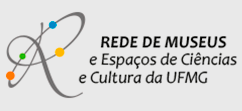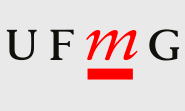
Autoria e Infos
Marina De Lima Tavares Et Al
Contato: marina_tavares@hotmail.com
Lattes:
Resumo
Este trabalho discute a visita à Estação Ecológica/UFMG pelos alunos de Licenciatura do
Curso de Formação Intercultural de Educação Indígena oferecido pela UFMG. Nossa intenção
é analisar como a visitação a espaços não formais pode contribuir para a formação desses
alunos numa perspectiva intercultural. Esperávamos que a visita preenchesse parte da
necessidade de se trabalhar com recursos didáticos capazes de articular o conhecimento
científico e o conhecimento tradicional indígena de forma lúdica e criativa. Como fonte de
análise, nos valemos dos registros escritos pelos estudantes, bolsistas e professor que
formaram os grupos de visitação. A análise da visita, como estratégia educativa, mostrou-se
importante para nossas reflexões. O espaço do lúdico se transformou em um espaço de
aprendizagem, favorecendo as interações e argumentações em sala. Talvez em função do
benefício dos momentos de interações dos estudantes com os diversos objetos durante a
visita, que propiciaram maior entendimento sobre o conteúdo escolhido.
Palavras-chave: Educação Indígena, Interculturalidade, Ensino de Ciências.;
Abstract
This work discusses the visit to Ecologic Station/UFMG by the students of Degree of
Intercultural formation course of Indigenous Education offered by UFMG. Our intention is to
analyze how the visitation the non-formal spaces can contribute to the formation of these students in a intercultural perspective. We had hoped that the visit to fill in part of the need to
work with educational resources capable of articulating the scientific knowledge and
indigenous traditional knowledge in a creative and playful. As a source of analysis, we are of
the written records of students, scholars and teacher who formed groups of visitation. The
analysis of the visit as an educational strategy, proved to be important for our reflections. The
playful space turned into a learning space favouring the interactions and arguments in the
room. Perhaps due to the benefit of the students’ interactions with the various objects during
the visit, which led to greater understanding of the chosen content.
Key words: Indigenous Education, Interculturalism, Teaching science.




